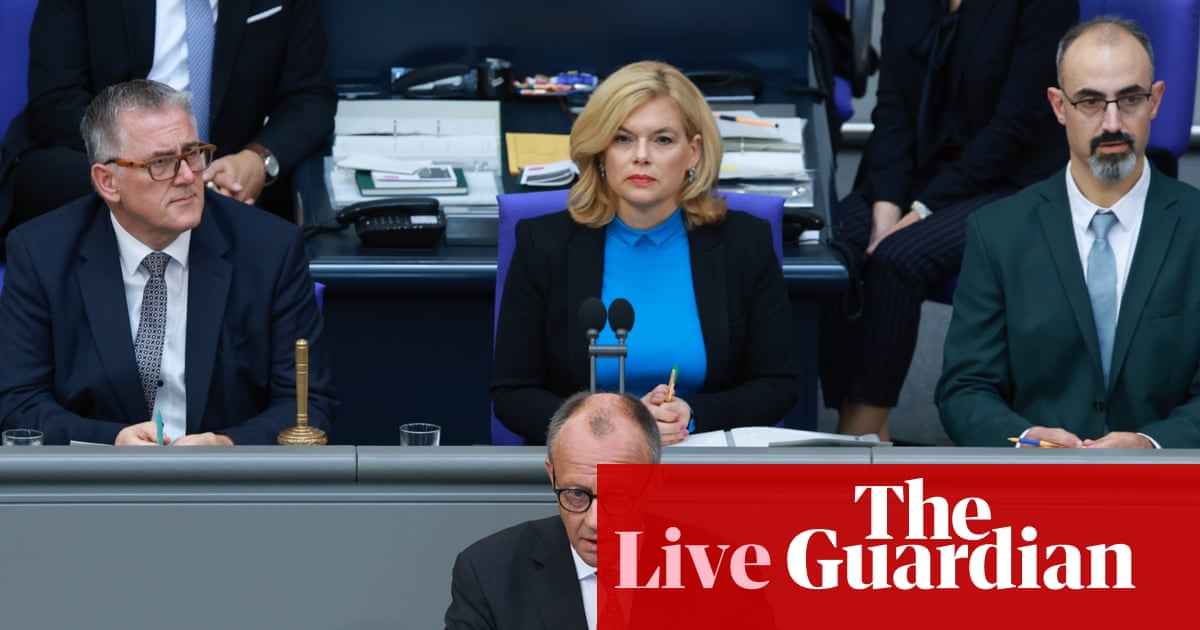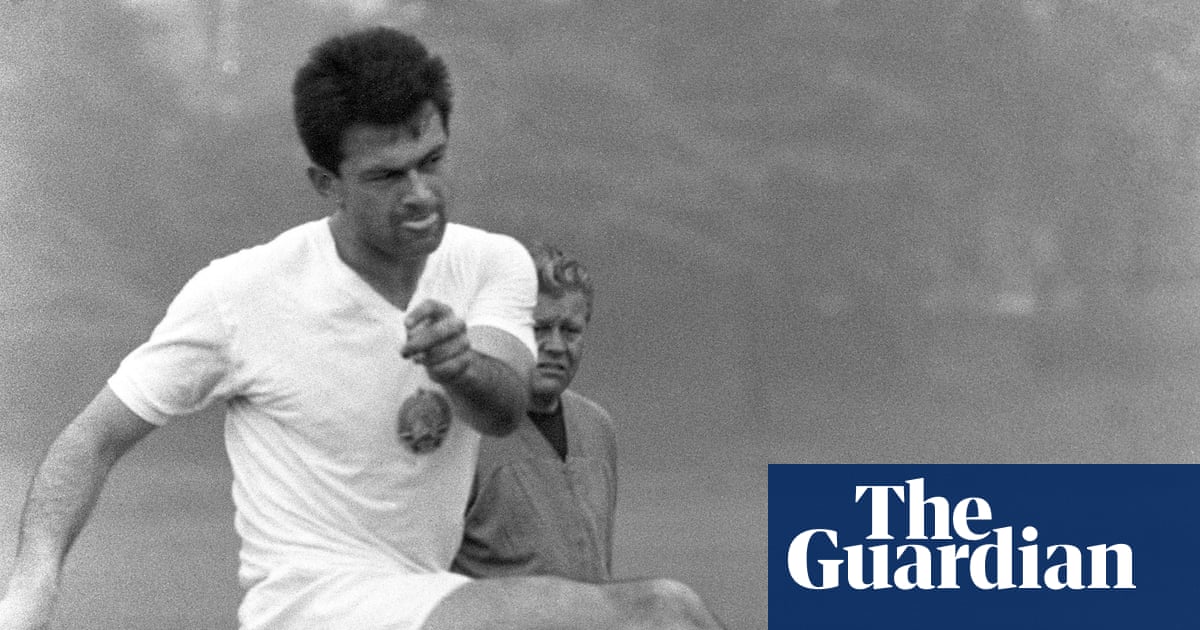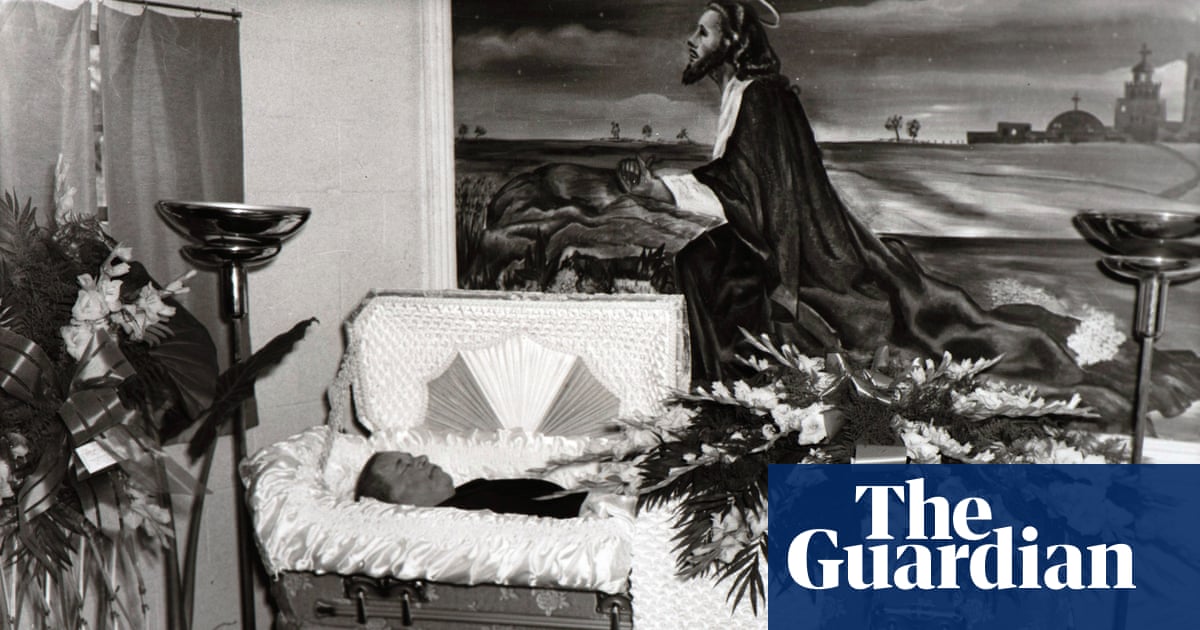The Israeli prime minister, Benjamin Netanyahu, has admitted arming clans in Gaza that he says are opposed to Hamas, following accusations that members of these criminal gangs allegedly looted humanitarian aid and have ties to jihadist groups.
Netanyahu’s comments came after Israeli media reports quoted defence sources as saying Netanyahu had authorised giving weapons to a clan reportedly led by a man known as Yasser Abu Shabab, a Rafah resident from a Bedouin family, known locally for his involvement in criminal activity. Israel allegedly provided Abu Shabab’s group, which calls itself the “Anti-Terror Service”, with Kalashnikov assault rifles, including weapons seized from Hamas.
“On the advice of security officials, we activated clans in Gaza that oppose Hamas. What’s wrong with that?” Netanyahu says in a short video he posted on social media. “It only saves the lives of Israeli solders,” he continued – “and publicising his only benefits Hamas.”
On Thursday, following the allegations circulating in the media, Netanyahu’s office said Israel “was working to defeat Hamas through various means, based on the recommendations of all the heads of the security establishment”.
The former defence minister and opposition lawmaker Avigdor Lieberman repeated the allegations and alleged that Abu Shabab’s group was affiliated with the Islamic State terror group.
“The Israeli government is giving weapons to a group of criminals and felons, identified with Islamic State, at the direction of the prime minister,” Lieberman, who heads the opposition Yisrael Beiteinu party, told Kan Bet public radio.
The basis for Lieberman’s allegation of ties to IS was unclear. Abu Shabab’s group has previously been accused of involvement in smuggling operations linked to Egyptian jihadi groups.
The Israel Defense Forces (IDF) did not immediately respond to a request for comment.
Yasser Abu Shabab’s involvement with Israeli troops was confirmed last week through several videos circulating on social media in Gaza, showing him operating alongside Israeli soldiers in IDF-controlled areas.
Last week, Abu Shabab’s family issued a statement disowning him, accusing him of collaborating with Israeli forces. “We, like everyone else, were surprised by video footage broadcast by the resistance showing the involvement of Yasser’s groups within a dangerous security framework, reaching the point of operating within undercover units and supporting the Zionist occupation forces, who are brutally killing our people,” it said.
“We affirm that we will not accept Yasser’s return to the family. We have no objection to those around him liquidating him immediately, and we tell you that his blood is forfeit.”
On 28 May, Jonathan Whittall, the head of United Nations office for the coordination of humanitarian affairs in occupied Palestinian territories, said: “The real theft of aid since the beginning of the war has been carried out by criminal gangs, under the watch of Israeli forces, and they were allowed to operate in proximity to the Kerem Shalom crossing point into Gaza.”
When contacted by the Guardian, Whittall confirmed he was “referring to gangs such as Abu Shabab.
On several posts on Facebook, reported by local media, Abu Shabab denied the allegations, saying he was taking the goods only to feed himself and his family.
Strong criticism of the initiative has come from opposition parties in Israel. In a social media post on X, Yair Golan, the leader of the Democrats in the Knesset, said: “Netanyahu is a threat to Israel’s national security. Instead of bringing about a deal … bringing the hostages home and providing security for Israeli citizens, he is creating a new ticking timebomb in Gaza”.
Despite nationwide protests demanding a ceasefire deal and the release of Israeli hostages still held in Gaza after Hamas’s 7 October 2023 attack, Netanyahu’s coalition remains solid, buoyed by the steadfast support of far-right parties.
That unity, however, may soon be tested, after the ultra-Orthodox Shas party in Netanyahu’s coalition announced it would support dissolving the Knesset.
The Shas party’s decision comes after no significant progress in advancing a law effectively exempting the ultra-Orthodox from the military draft.
Israel has mandatory army service but for decades made an exemption for ultra-Orthodox Jews, also known as Haredi, who are allowed to continue full-time Torah study. But an alternative plan seeks to extend the duration of military service for conscripts and raise the age for reservists, while also urging an end to the customary exemptions granted to yeshiva students.
Due to the continuing war in Gaza, the IDF is seeking yeshiva students must be drafted, as it urgently needs an additional 10,000 combat soldiers and about 3,000 soldiers for other roles.
Meanwhile, Israeli jets continued to pound Gaza on Thursday and Friday. According to Gaza’s health officials, at least 52 Palestinians have been killed in attacks in Gaza across the strip, as the UN says that the number of Gaza children facing acute malnutrition has soared since February, with more than 2,700 suffering from it.
The US backed-Gaza Humanitarian Foundation said on Friday that all of its aid distribution sites in the enclave remained closed and a reopening date would be announced later, urging residents to stay away from these sites “for their safety”.
Work at the sites was halted in response to a series of deadly shootings by Israeli soldiers that on Tuesday killed 27 Palestinians and injured hundreds as they were waiting for food.

 3 months ago
49
3 months ago
49

















































